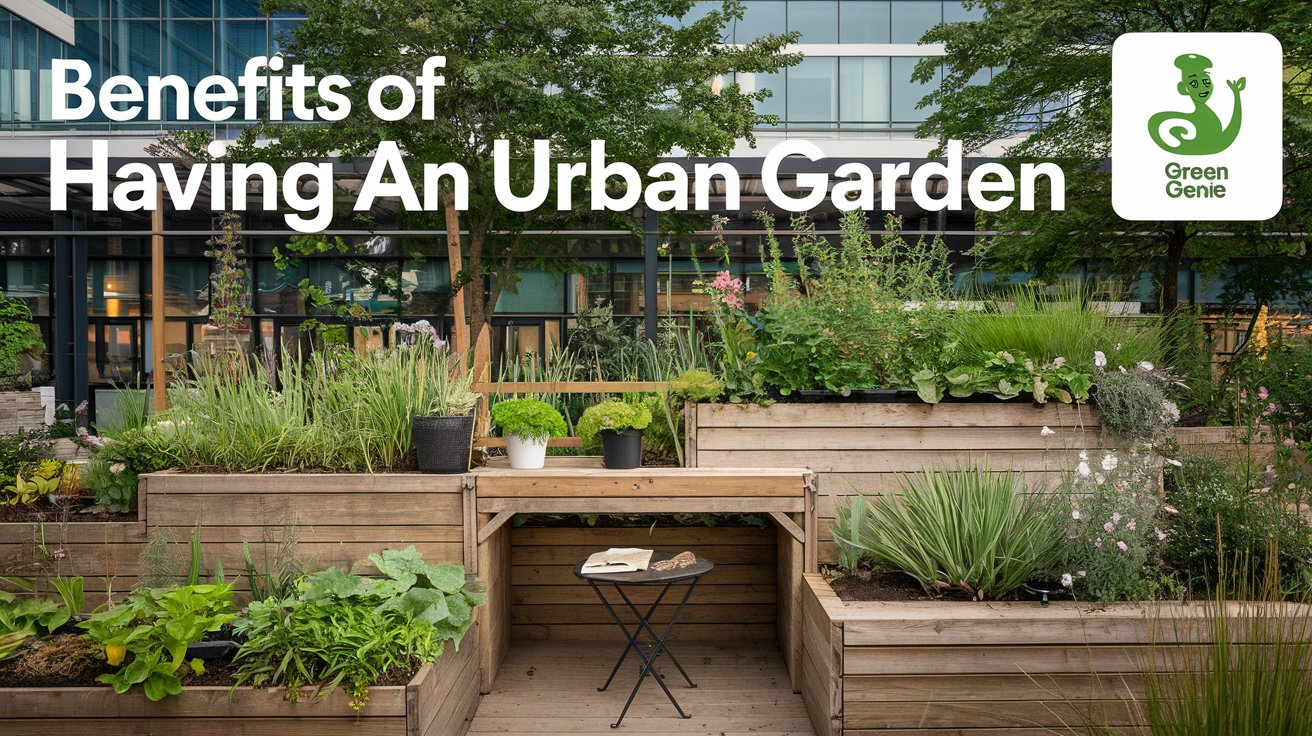Benefits of Having an Urban Garden
Urban gardening is rapidly becoming the new trend in expanding cities where green spaces are extremely limited. This not only enhances the appearance of urban areas but also offers numerous advantages for the health and well-being of individuals and communities. In this article, we outline the various benefits of having an urban garden, covering everything from environmental effects to mental health.
1. Environmental Sustainability
One of the most notable advantages of urban gardens is their contribution to ecological sustainability. Urban gardening allows food to be consumed nearby, thereby minimizing the long-distance transportation of food products and reducing carbon emissions. Urban gardens shorten the supply chain, enabling communities to access fresh produce without increasing their ecological impact. Additionally, sustainable methods such as composting, organic pest management, and rainwater collection are frequently employed in these gardens, promoting environmental stewardship.
Urban gardens also enhance the diversity of life within the city. They provide habitats for various bird species, insects, and beneficial microorganisms. In this manner, urban gardens help create a more intricate ecosystem, improving the city’s health and mitigating the effects of urban heat islands, where built-up areas become significantly warmer than their rural surroundings.
2. Improvement of Air Quality
One beneficial aspect of urban gardening related to air quality is that plants absorb carbon dioxide and release oxygen, thus purifying the atmosphere. At the same time, they filter out pollutants and particulate matter, providing cleaner air for city dwellers. Moreover, urban gardens can mitigate noise pollution; their serene environments offer a sense of tranquility amid the clamor of urban life.Benefits of Having an Urban Garden
3. Food Security and Nutrition
Urban gardens can greatly improve food security in cities, particularly in regions known as food deserts—areas where access to fresh, nutritious food is scarce. Supplementing diets with healthier fruits, vegetables, and herbs grown by urban residents enhances individual health and fosters a culture of healthy eating. Gardening imparts essential skills in nutrition and food preparation, enabling individuals to make informed dietary choices.
4. Community Building and Social Interaction
Urban gardens become communal spaces that facilitate social networking and collaboration. They bring individuals together, allowing neighbors to work side by side, share knowledge, and celebrate successes. Community spaces generally strengthen relationships, build trust, and foster a sense of belonging among residents. Furthermore, many community gardens organize events, workshops, and educational programs that create opportunities for skill development and community engagement.Benefits of Having an Urban Garden
5. Economic Benefits
Urban gardening can positively impact the local economy. Locally grown food supports small businesses, local farmers, and markets selling their produce. Additionally, urban gardens can increase property values, making neighborhoods more appealing to potential residents and investors. Some cities have even enacted policies encouraging urban gardening, recognizing its potential to stimulate economic activity and create jobs in gardening and landscaping.
6. Education
Urban gardens serve as excellent educational tools for all ages. School districts are increasingly collaborating with community gardens to teach students about gardening, sustainability, and nutrition. These partnerships nurture environmental responsibility and educate individuals about food systems. Gardening also enhances skills such as teamwork, problem-solving, and responsibility, making it a valuable complement to educational curricula.
7. Mental Health and Well-Being
The therapeutic benefits of gardening are well recognized. Gardening activities can effectively reduce anxiety and stress levels, providing a source of comfort and restoration. Spending time in nature has been shown to improve mood and overall mental health. Caring for plants and witnessing their growth fosters a sense of accomplishment and purpose, which can be particularly beneficial for individuals facing mental health challenges
.Benefits of Having an Urban Garden
Additionally, urban gardens offer a refuge from the fast pace of urban life. They create peaceful spaces for relaxation, reflection, and mindfulness. This connection to nature has been proven to enhance emotional well-being and contribute to a more balanced lifestyle.
8. Beautification of Urban Surroundings
Urban gardens enhance the beauty of cities. By transforming neglected lots and underutilized rooftops, they create vibrant green spaces. Such gardens improve the landscape of urban areas, contributing to a more attractive living environment and enhancing overall quality of life. Well-designed urban gardens can also attract tourists and visitors, enriching local economies.
9. Resilience to Climate Change
Urban gardening can play a vital role in managing climate change and building a city’s resilience. Green spaces help regulate stormwater runoff, preventing floods and mitigating rising temperatures during heat waves. This integration of greenery allows cities to become more adaptable to climate-related challenges while creating livable and sustainable environments for future generations.Benefits of Having an Urban Garden
10. Personal Development and Empowerment
Gardening encourages action and builds self-confidence and self-esteem as individuals work toward achieving their goals. It instills pride in producing crops from seed to harvest. Furthermore, urban gardening connects people to the earth and the sources of their food, facilitating informed choices about what they consume.Benefits of Having an Urban Garden
Conclusion
Beyond the act of gardening itself, urban gardens offer numerous benefits. These include ecological sustainability, improved air quality, enhanced food security, community building, economic growth, educational opportunities, mental health benefits, aesthetic enhancement, climate resilience, and personal empowerment. In cities that are constantly expanding, the importance of integrating green spaces and urban gardens into city planning becomes essential for fostering healthier, more vibrant, and sustainable communities. Investing in urban gardening initiatives is a significant step toward a brighter future for ourselves and generations to come.
